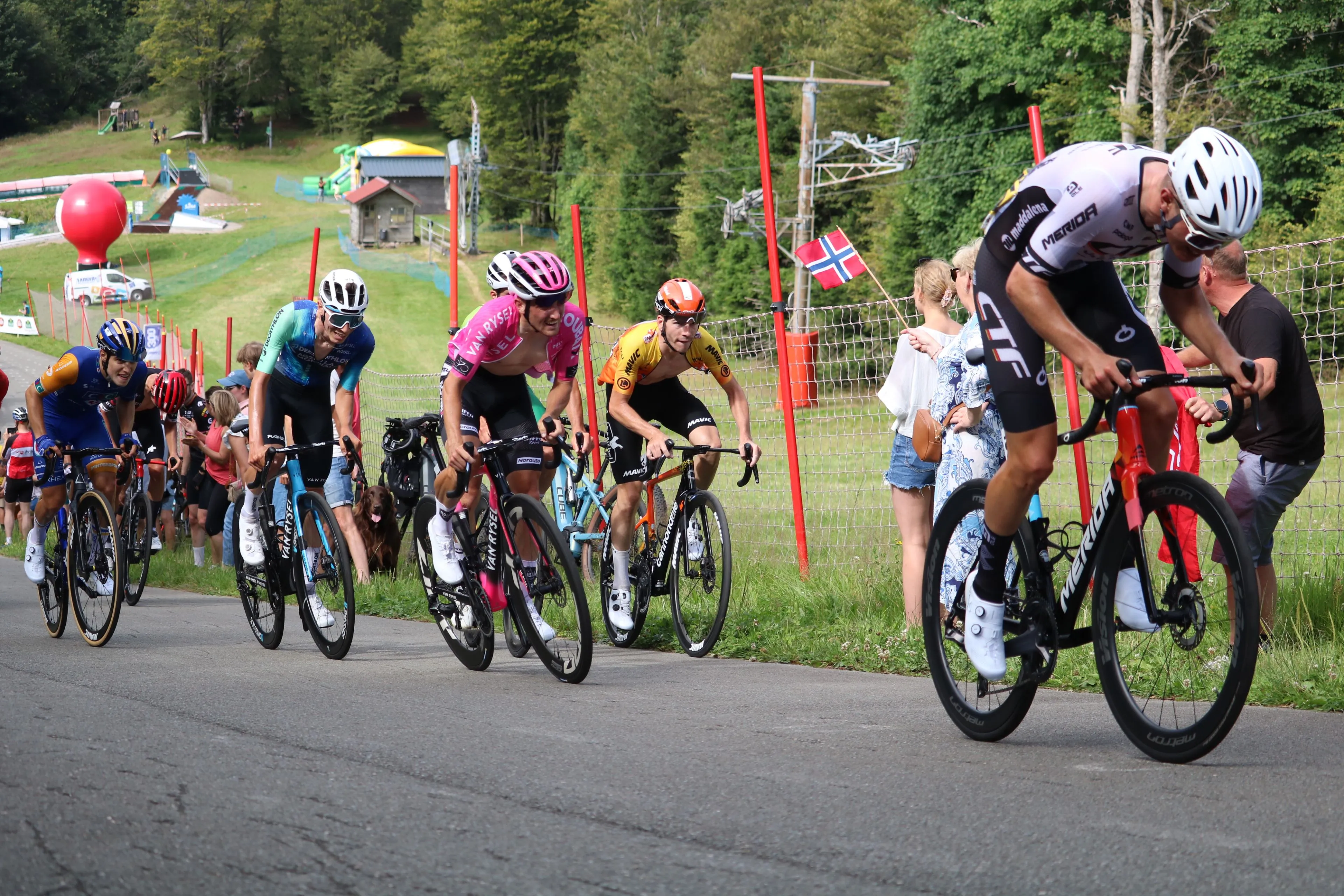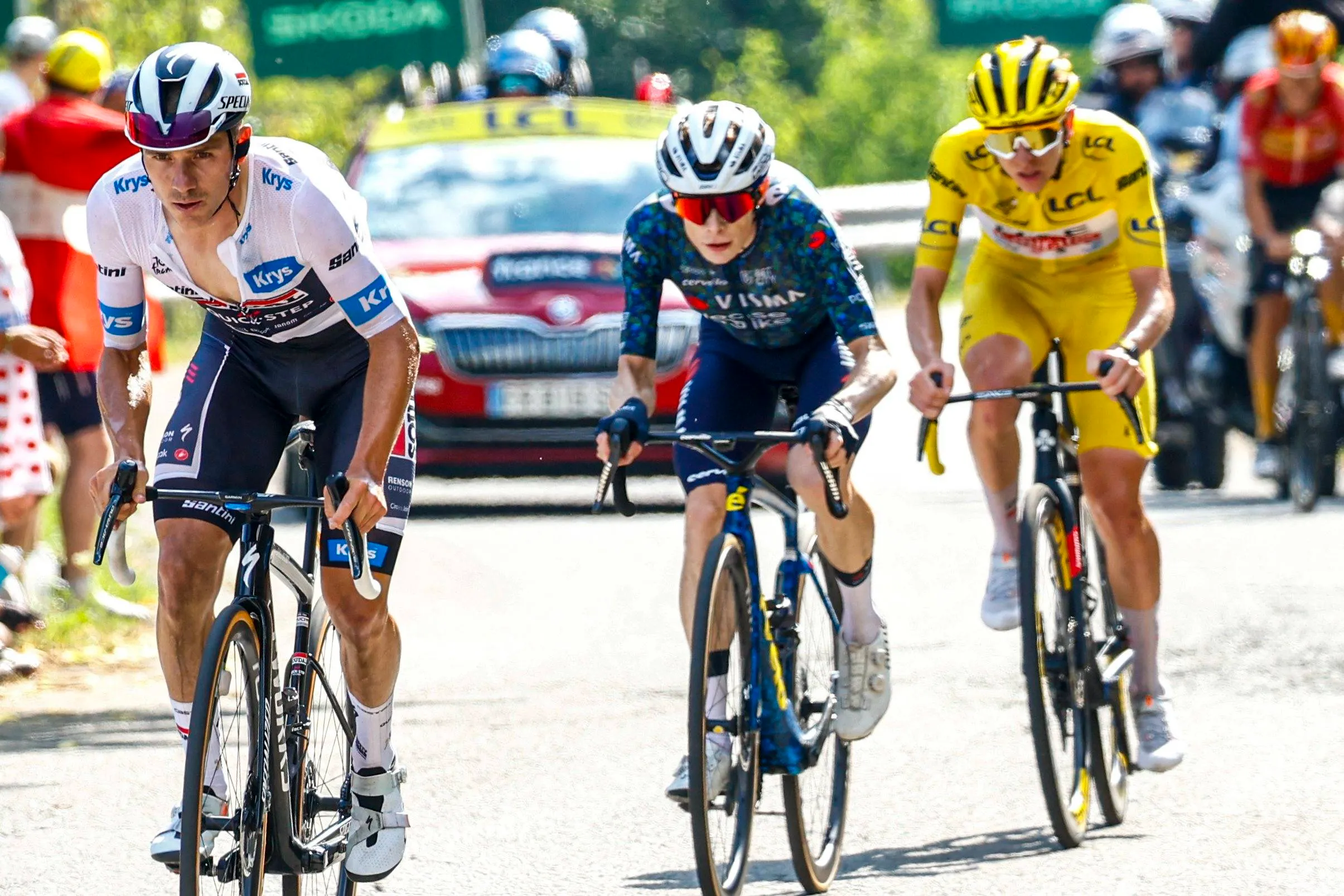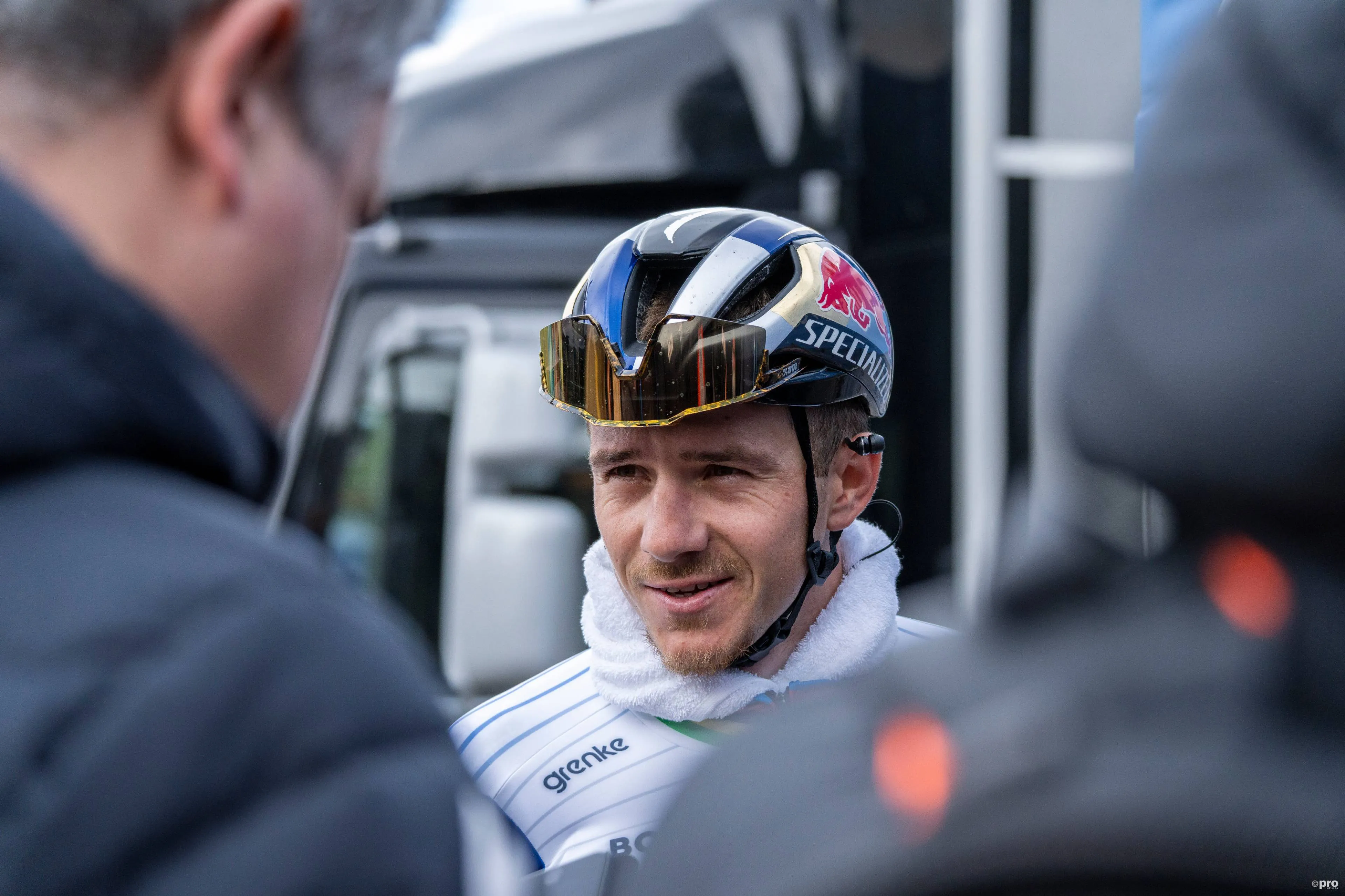"Cycling is becoming more extreme, but you need that obsessiveness as a top athlete to excel" - Former pro tackles the case of young riders giving up their dream of becoming pros
CyclingTuesday, 29 October 2024 at 23:00

The cycling public is still vividly discussing the impact of recent retirement of two talents from Soudal - Quick-Step's development team. The first year U23s Cormac Nisbet and Gabriel Berg both cite "lack of life outside cycling" and "too high pressure to perform" among many reasons for their decision.
It's not news that the professionalization of the sponsor in younger categories has been fast in recent years, with big teams looking for the new Pogacars and Vingegaards pretty much since kindergarten. It has become almost necessary to train like professionals since young age in order to be able to keep up with the high level of sport.
Former long-time professional Laurens ten Dam goes into this in more detail in his podcast Live Slow, Ride Fast. "Cycling is becoming more extreme, but first of all: I, and Thomas too, were obsessed with the sport and felt completely involved in it."
Read also
"All I wanted was to become a pro. I don't know if these guys were suited for the life of a top athlete, but it's true that there is more and more monitoring at a young age."
Ten Dam gives an example of the more intense life of a cyclist. "I trained twenty hours a week. Then there were people who said: 'Should you do that, because otherwise you'll be so burned out?' But now there are studies that show that the sooner you train a lot, the better it is for your Vo2Max. We didn't know that at the time."
Read also
There is much more information about the riders in question. "Juniors spend the entire winter in Spain. I just booked a weekend trip to Gulpen. I went there for a week. I thought I was doing well by training hard for a week. The life of an athlete has become more extreme. Young riders will find that off-putting, but you need that obsessiveness as a top athlete to excel."
It just goes too far, Ten Dam agrees. "I read an interview in which Jutta Leerdam (speedskater, ed.) said: 'When I see how much time I've lost with friends and family, it wasn't worth it at all.' That may be healthy, but it is the opposite of the norm."
Read also
claps 0visitors 0
Just in
Popular news
Latest comments
- Slowly slowly the youngsters are making more and more of an impact.Mistermaumau18-02-2026
- I agree for certain situations, especially camps and popular training destinations but teams can’t manage or afford to chaperone all their riders all the time. Off season they still have to train and want to be home as much as they can (this is also where they are easiest to « catch »). On the other hand, if riders like Tadej accept « invitations » to ride on certain roads just for promotional purposes like in Gran Canaria they are also responsible for any trouble it attracts, you can’t expect people to stay away once you deliberately notify where you’re going to be and when. SeemsMistermaumau18-02-2026
- Please, no. Enough loonies out and about, safer indoors spouting out online.Mistermaumau18-02-2026
- Coach is smart to get out before Yates' doping hits the press
 Front24218-02-2026
Front24218-02-2026 - You need to get out moreJezla18-02-2026
- Ego and self regard are at the center of most human folly.TheOlderIGetTheFasterIWas18-02-2026
- You can't win 'em all. These early season races at this level are good because it shows where you are weak and need work.awp18-02-2026
- This is what I wrote 12-02-2026 10:00: "As far as I'm convinced, Remco still has "zero" wins. I invite Remco to stop in Siena to meet his Slovenian master, Pogi the G.O.A.T... but no, it's better to run away and hide. His fans will somehow defend and glorify him. Let me repeat, he still has zero wins in 2026. If someone doesn't have a high enough IQ to understand what I'm talking about, it's because they don't recognize the low ranking F category races. If Remco will beat Del Toro and Adam Yates in the UAE Tour, then I will consider this to be his first win in 2026. Ad acta." PS: Remco still has zero wins. His second and third class races don't count. The first real race comes along and Mustafa Remco fails.Mou-Cro-HR18-02-2026
- This is what I wrote 12-02-2026 10:00: "As far as I'm convinced, Remco still has "zero" wins. I invite Remco to stop in Siena to meet his Slovenian master, Pogi the G.O.A.T... but no, it's better to run away and hide. His fans will somehow defend and glorify him. Let me repeat, he still has zero wins in 2026. If someone doesn't have a high enough IQ to understand what I'm talking about, it's because they don't recognize the low ranking F category races. If Remco will beat Del Toro and Adam Yates in the UAE Tour, then I will consider this to be his first win in 2026. Ad acta." PS: Remco still has zero wins. His second and third class races don't count. The first real race comes along and Mustafa fails.Mou-Cro-HR18-02-2026
- OK, let's stop with the BS. Remco Mustafa didn't have any cramps, 100%. The only truth is, Remco is not the great cyclist that the Belgians and his fans want us to think. Ad acta!!!... Once in the fall of 2025 I said that Remco's chances of following Pogi are equal to my chances, there is no difference. The only difference is that I'm in front of a TV and Mustafa is acting and making excuses live in front of an audience of millions. Ayuso and Remco are the biggest liars in the peleton.Mou-Cro-HR18-02-2026
Loading
Write a comment









